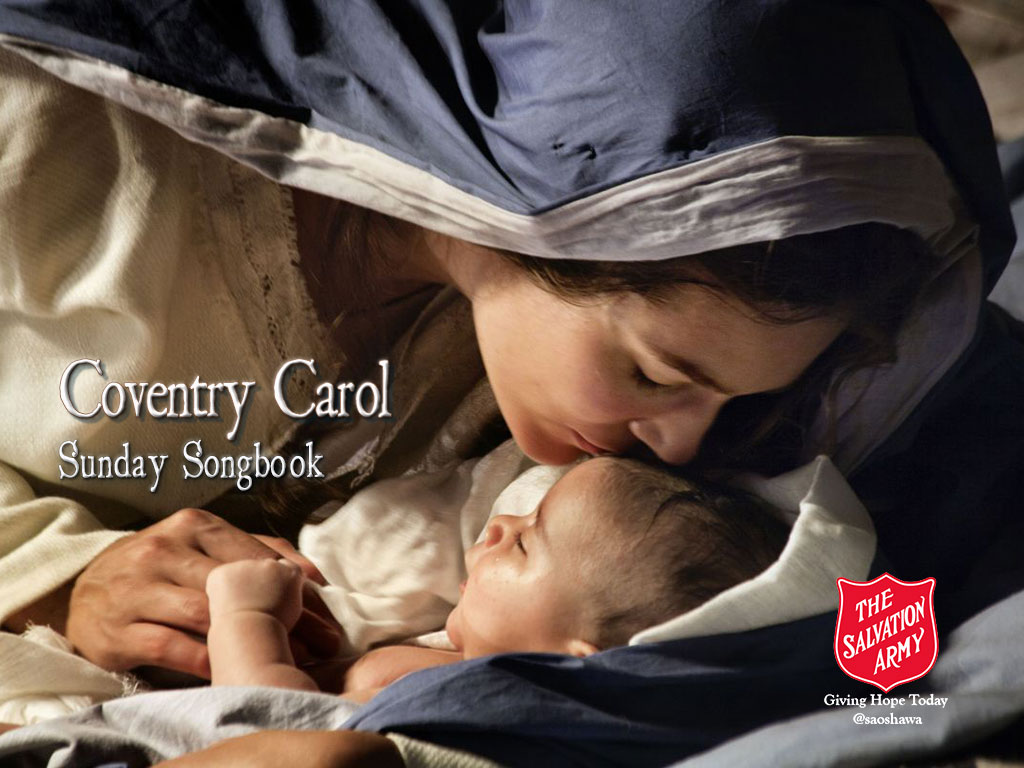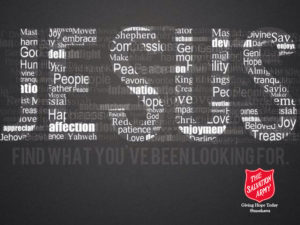Lulay, Thou little, tiny Child,
Bye-bye, lulee, lulay.
Lulay, Thou little, tiny Child,
Bye-bye, lulee, lulay.
O, sisters, too, how may we do
For to preserve this day
This poor Youngling for whom we sing,
“Bye-bye, lulee, lulay”?
Herod the king in his raging
Charged he hath this day
His men of might in his own sight
All children young to slay.
Then woe is me, poor Child for Thee,
And ever morn and day;
For at Thy parting nor say nor sing,
“Bye-bye, lulee, lulay.”
What unusual words for a Christmas carol, yet this is one of the oldest hymns on record! The words were written in 1534 and the music in 1591. It is not found in our Salvation Army Song Book, but is often heard at Christmastime. The song was part of an English ‘mystery play’ called “The Pageant of the Shearman and Tailors“. It tells of a less than happy part of the Christmas story – part we often gloss over, but the reason Jesus and his parents fled to Egypt: Herod’s killing of the baby boys born in Israel over a two-year period. The women in the carol are singing their babies to sleep in order to hide them from the oncoming soldiers. In the actual play, one of the women tries to fight off the soldiers by attacking them with her pot ladle!
the women tries to fight off the soldiers by attacking them with her pot ladle! Share on XAlthough this part of the story is unpleasant, it reminds us, as Ian Howes writes, “that God Himself came to Earth as a tiny Baby with a plan to save us from our sins, and with the blessed hope of our being with Him in Heaven following our time here on Earth … We also know that from the time of Jesus’ birth, the world has never been the same.”
As we begin another Christmas season, aware of much in our world that is wrong and unpleasant, let’s cling to the hope that faith in Jesus brings, knowing that He came to show the love of God our Heavenly Father and that He wills good for us all.
WORDS: ROBERT CROO MUSIC: ATTRIBUTED TO THOMAS MAWDYCKE
REFERENCE: HOWES, IAN, CELEBRATION MORNING







